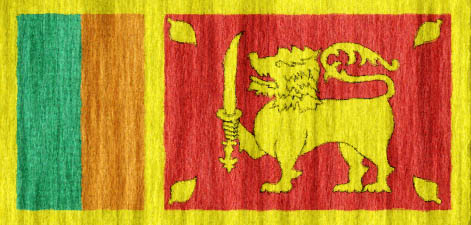|
The Roman Catholic church yesterday urged Sri Lanka not to politicise a visit by the Pope in January amid reports that President Mahinda Rajapakse may hold a snap election early next year. |
Cardinal Malcom Ranjith, the head of the Catholic church on the island, called on Rajapakse’s government not to use Pope Francis’ visit from January 13-15 as a “political tool”.
His remarks came amid intense media speculation that Rajapakse, who removed the two-term limit on the presidency after his 2010 re-election, was preparing a poll early next year.
“We have told the president that it is not appropriate for a Pope to visit a country that is in the middle of an election campaign,” the cardinal told reporters in Colombo.
“The visit should not be used as a political tool by the government, or the opposition, or anybody else for that matter.”
Sri Lanka is mainly a Buddhist country, but it has a 7.5% Christian population whose block vote could be decisive in the event of a close presidential election.
Asked if it would be acceptable if a snap election is concluded before the papal visit, Cardinal Ranjith said: “The government has to decide on those things ... It must be a visit free of politics. That is the position of the Catholic
Bishops’ Conference.”
The 77-year-old Pope is due to spend three days in Sri Lanka before heading to the Philippines — Asia’s largest Catholic country.
He is scheduled to travel to the island’s former war zone and conduct mass at a church which suffered damage during the height of fighting between troops and Tamil rebels.
The Pope will hold two separate public mass, one in the national capital Colombo and another in the northwestern region of Mannar.
President Rajapakse would call on the Pope in the same evening.
The Pope will hold a mass in the Galle Face promenade opposite the president’s office next day before heading off to the sacred Madu church in Mannar in the north.
The last papal visit to the Buddhist majority Sri Lanka was in 1995 when Pope John Paul II visited the emerald
island in January that year.
Sri Lanka ended 37-years of ethnic bloodshed after wiping out the leadership of Tamil Tiger rebels in a no-holds-barred 2009 military campaign that has also triggered allegations of war crimes.

